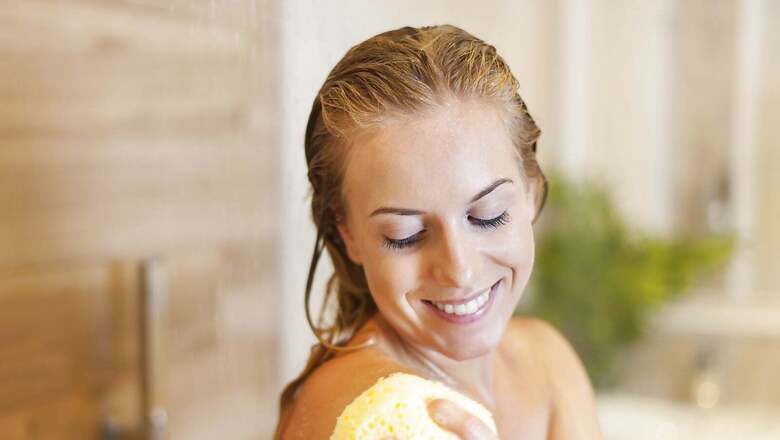
views
We have all used a plastic loofah during our showers, to get a luxurious, foamy feel, when bathing with a shower gel or body wash. However, loofahs are honestly not the best option.
“Yes, using a loofah will exfoliate your skin, and get rid of the dead skin cells that are usually on your epidermis. You could, however, end up scrubbing too hard, and even damaging the epidermis, thus causing abrasion and irritation, as well as redness to the skin. Over time, they could damage your skin too,” says Dr. Manasi Shirolikar, a consultant dermatologist, MBBS, DDVL.
The dead skin cells also tend to linger, and remain on the loofah that you used, and can get entangled in the many layers of the loofah, and never really get washed away or cleaned.
Bathrooms are a moist environment. While showering, the steam from the water converts to moisture that is left behind. “Loofahs, in such an environment, along with the presence of the dead skin cells, along with dirt, oil and dust from the body can also attract mould on to it, and thus become a breeding ground of all sorts of infections, including E. Coli. Also, if this loofah is then used somewhere where there’s a fresh wound or an open cut, the chances of an infection are extremely high,” adds Dr Shirolikar.
If you do wish to use a loofah though, you need to make sure it is thoroughly cleaned after every use. “Wring it dry, and put it in a cool, dry place outside your bathroom, so that it could dry properly. You can also additionally use a dry cloth to wipe off the excess moisture, but do not store it in your bathroom,” opines Dr Shirolikar.
Also Read: The Power of Nude and Grey: How These Colors Can Enhance Natural Light in Your Living Room
Once a week, clean it with either diluted bleach or vinegar, and rinse thoroughly with cold water. Also, make sure you replace your loofah every 4 weeks.
Do not over scrub your body with a loofah, and make sure you avoid using it on or near your genitals, and perineum. “Also, if you have just shaved your skin, avoid using a loofah at all costs, as your skin’s barrier is compromised at this moment, and more susceptible to infections,” warns Dr Shirolikar.
Finally, you can, in place of a loofah, consider using products like silicone bath scrubbers, or a washcloth, but they too need to be cleaned thoroughly after every use.
Read all the Latest Lifestyle News here



















Comments
0 comment